| Dear Voornaam, Welcome to your August newsletter. I hope you and your family are well. The ongoing difficulties and uncertainty created by COVID-19 unfortunately continue. Many of you will have read the news of the cuts we've announced in light of the devastating impact of COVID-19 on our income. With a prediction of a 30% or 160m fall in our income this year and anticipating a fall of 300m over the next 3 years, we need to reduce our workforce by around 500 roles. This comes on top of reductions in our research spend this year and the potential for further reduction in the years to come, with possible cuts amounting to 150m per year from what we had planned to spend.
These potential cuts would be a significant blow to our ambitions, but we are confident, based on underlying fundraising, that support for the charity remains just as strong as before; it is simply that our events and shops have had to close. It is incredibly frustrating to see a short-term crisis impact our life-saving research when the underlying position of the charity is so strong. We are therefore working hard each day to try and secure support from the Government to help solve the funding gap. Thank you to all those who have helped us in the effort so far. We have seen questions raised in the House of Commons and many MPs join our call as a result of your help. The medical research charity sector plays a vital role in strengthening the UK's research ecosystem (as shown by the response to COVID-19) and we will continue to push hard to gain the support of the Government. Our new proposed research model is flexible so that if we are successful in securing additional funding, we can bridge the funding gap. Cancer hasn't gone away during this crisis and we must ensure it remains high on the agenda as we see the potential impact on cancer patients as a result of the disruptions to cancer services. And finally, with closed labs and cancelled conferences, Richard Gilbertson, Director of the CRUK Cambridge Centre, kickstarted the Open Lab Initiative. This is an excellent way to meet collaborators online and share ideas with a matched research group via virtual meetings. Following a successful pilot, the Open Lab Initiative has now rolled out nationally to research groups across the UK. This has been a fantastic initiative and we're looking forward to seeing how this can be extended to involved international research groups.
Kind regards, Iain Foulkes Executive Director, Research & Innovation Cancer Research UK |
|
|---|
|
|---|
|
|
| | | ESTABLISHED INDEPENDENT RESEARCHER, CLINICIAN, NON-CLINICAL RESEARCHER 20 August 2020 |
|
|---|
|
|---|
| | | MID-CAREER RESEARCHER, ESTABLISHED INDEPENDENT RESEARCHER, CLINICIAN, NON-CLINICAL RESEARCHER 20 August 2020 |
|
|---|
|
|---|
| | | ESTABLISHED INDEPENDENT RESEARCHER, CLINICIAN, NON-CLINICAL RESEARCHER 20 August 2020 |
|
|---|
|
|---|
| | | EARLY CAREER RESEARCHER, MID-CAREER RESEARCHER, ESTABLISHED INDEPENDENT RESEARCHER, CLINICIAN, NON-CLINICAL RESEARCHER 24 August 2020 |
|
|---|
|
|---|
| | | EARLY CAREER RESEARCHER, MID-CAREER RESEARCHER, CLINICIAN, ESTABLISHED INDEPENDENT RESEARCHER, NON-CLINICAL RESEARCHER, HEALTH PROFESSIONAL, INDUSTRY RESEARCHER 15 September 2020 |
|
|---|
|
|---|
|
|
| | CYTOSPONGE TRANSFORMS OESOPHAGEAL CANCER DIAGNOSIS The latest results from a CRUK-funded study is transforming the way Barretts oesophagus is diagnosed. The Cytosponge-TFF3 test is a sponge-on-a-string device coupled with a laboratory test called TFF3 which tests for Barretts oesophagus that can be done in a GP surgery. The latest results, published in The Lancet, suggest this test can identify 10 times more people with Barretts oesophagus than current GP care. The test is also better at picking up abnormal cells and potentially detecting early-stage cancer. Alongside better detection methods, the test means cancer patients can benefit from kinder treatment options if their cancer is caught at an earlier stage. |
|
|---|
|
|---|
|
|
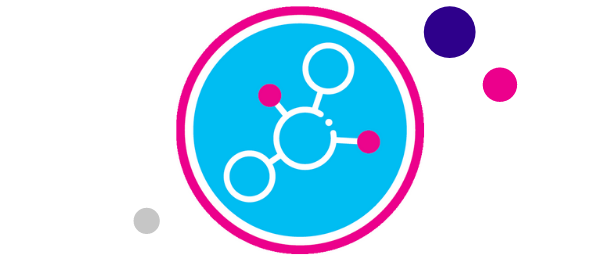 THE OPEN LAB INITIATIVE ROLLS OUT ACROSS THE UK Is your research group looking for new opportunities to exchange ideas and interact more closely with other groups? The CRUK Open Lab Initiative is a digital tool which connects research groups with shared interests to generate new collaborations and spark discussions. The pilot phase, which launched in April 2020, successfully paired over 50 research groups. The tool is now available to researchers across the UK, enabling virtual meetings during the COVID-19 pandemic and beyond. Join the virtual community and find your next collaboration. |
|
|---|
|  LEADING CANCER RESEARCH THROUGH A PANDEMIC AND BEYOND During COVID-19, cancer researchers in leadership positions have taken swift action to protect patients, support students and postdocs, and continue to do research in a climate of uncertainty.
In the latest piece in our Researcher voices in the time of COVID-19 series, 8 mid-career and senior cancer research leaders tell us about the choices theyve made during the COVID-19 pandemic and their outlook on the future. |
|
|---|
|
|---|
|
|
 THE POWER OF GENOMIC CANCER DATA Linked genomic and patient cancer registry data can advance research and guide treatment decisions. In a recent article, we discuss how CRUK is working with Public Health England to help scientists, clinicians and patients unleash the potential of linked cancer and genomic data. The National Lung Matrix Trial results, published recently in Nature, highlight the power of genomic profiling for precision medicine. |
|
|---|
| 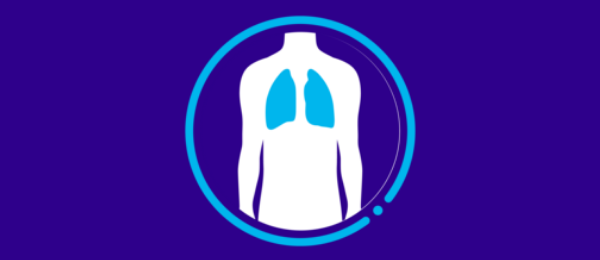 NATIONAL LUNG MATRIX TRIAL HIGHLIGHTS NEW APPROACH The National Lung Matrix Trial is the worlds largest precision medicine clinical trial for non-small cell lung cancer patients. Funded by CRUK and supported by our Stratified Medicine Programme Phase 2 (SMP2) screening platform, the latest findings of the trial have highlighted important factors that will need to be considered in the next wave of precision medicine studies, particularly in treating genomically complicated cancers.
The University of Birminghams CRUK Clinical Trials Unit led the trial and the latest results, published in Nature, reveal key learnings on the use of precision medicine. These include: the importance of appropriate pre-clinical work in defining appropriate biomarker-drug combinations to test in the clinic, ensuring that the best drugs available are used to hit the genomic targets, the scale of attrition from large screening platforms, and the importance of analysing and publishing outcome data of an ongoing study.
|
|
|---|
|
|---|
|
|
| | REGISTER: VIRTUAL EARLY DETECTION CONFERENCE Were excited to announce that you can now register to join our first virtual Early Detection of Cancer Conference. Taking place 68 October 2020, well be offering a series of virtual talks, discussions and networking for everyone working in early detection.
Expect a jam-packed agenda with lightening talks, networking sessions, and expert panel discussions. Therell also be a panel discussion on emerging opportunities for early detection reflecting on the COVID-19 pandemic. |
|
|---|
|
|---|
|
|
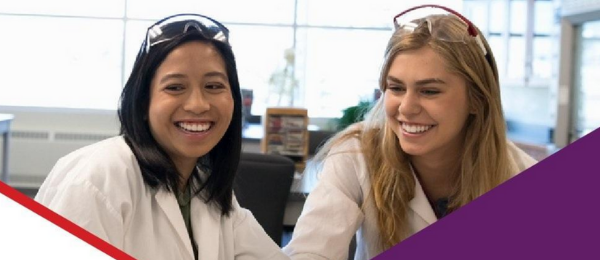 TAKE YOUR RESEARCH IDEA TO MARKET WITH ICURE In association with Innovate UK, Cancer Research UK is giving 4 early career researchers the opportunity to participate in Innovation-to-Commercialisation of University Research (ICURe) a comprehensive 4-month online programme to explore the market potential of your research. Using a lean startup approach, ICURe will give you the know-how you need to commercialise your idea. You and your team will benefit from up to 30,000 funding to get out of the lab and validate your commercially promising idea in the marketplace. Application deadline: 12 August 2020 |
|
|---|
|  CALL FOR MULTIDISCIPLINARY PROPOSALS Our partners at NCRI are currently accepting proposal submissions for the upcoming NCRI Multidisciplinary Research Proposal Guidance meeting taking place on 2829 October 2020. These meetings support cancer researchers to develop their ideas into applications which can then be submitted to a funding committee. NCRI are inviting brief outline proposals from investigators across all areas of research with multidisciplinary proposals to discuss at the meeting. Investigators will be invited to give a presentation, followed by a discussion with a panel on how the proposal might be developed. Submission deadline: 28 August 2020 |
|
|---|
|
|---|
|
|
| | MAKE YOUR IP COUNT The second in our series of entrepreneurial training seminars takes place on Wednesday, 26 August and will focus on all areas of intellectual property (IP) patents, trademarks and designs. The session will feature Tim Russell and Anton Hutter, both patent attorneys at the IP firm Venner Shipley. This seminar is part of our Entrepreneurial Programmes Initiative and we're running it in partnership with Start Codon. Join us to learn how to formulate an IP strategy, including what is and isn't protectable, and how to protect the things that are. You'll learn from case studies and you'll have an opportunity to get your IP questions answered. |
|
|---|
|
|---|
|
|
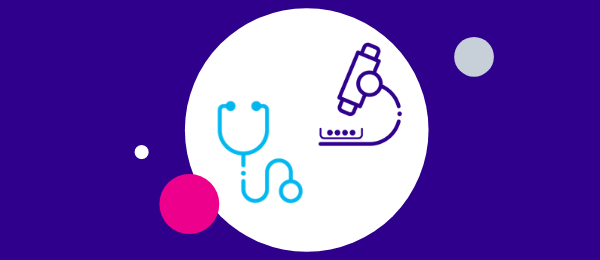 ONLINE TOOL TO GUIDE CLINICAL DECISIONS The Cancer Core Europe (CCE) network of 7 leading European cancer centres has developed a tool to analyse large volumes of complex genetic and molecular data. In an article published in Nature Medicine, Carlos Caldas (CRUK Cambridge Institute), Richard Baird (Addenbrooke's Hospital) and others describe the development and clinical use of the Molecular Tumour Board Portal (MTBP). The portal is used to select candidates for the Basket of Baskets trial, a modular multi-arm study for genomically defined populations, as well as other clinical studies with active recruitment across CCE sites. An open-access version of the tool for researchers outside of the CCE network is available at https://mtbp.org. |
|
|---|
| 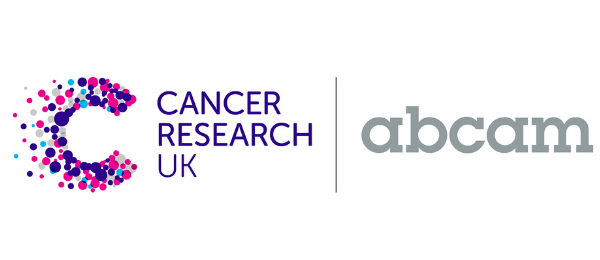 NEW PARTNERSHIP TO DEVELOP CUSTOM ANTIBODIES Weve partnered with Abcam, a global innovator in life science reagents and tools, to give you the opportunity to access capabilities to develop custom antibodies. Visit our website to learn more and apply. |
|
|---|
|
|---|
|
|
| | CELEBRATING SUCCESS IN OUR COMMUNITY Warm congratulations to the CRUK researchers whove been honoured in recent weeks. Bertie Gttgens, Kathryn Lilley, Serena Nik-Zainal and Anna Philpott all members of the CRUK Cambridge Centre and Caroline Dive (CRUK Manchester Institute) were among the 63 scientists from around the world elected this year as Members of the European Molecular Biology Organisation (EMBO). An additional congratulations to Caroline Dive, who is the inaugural winner of the Johann Anton Merck Award, which celebrates the best new scientific research in oncology and autoimmunity. Were delighted to see the scientific excellence in our community recognised through these prestigious awards. |
|
|---|
|
|---|
|
|
| | | 11:00 AM 09 September 2020 |
|
|---|
|
|---|
|
|
| Been forwarded this email? Subscribe to our newsletter to stay up-to-date. |
|---|
| |
|---|
|
|
|